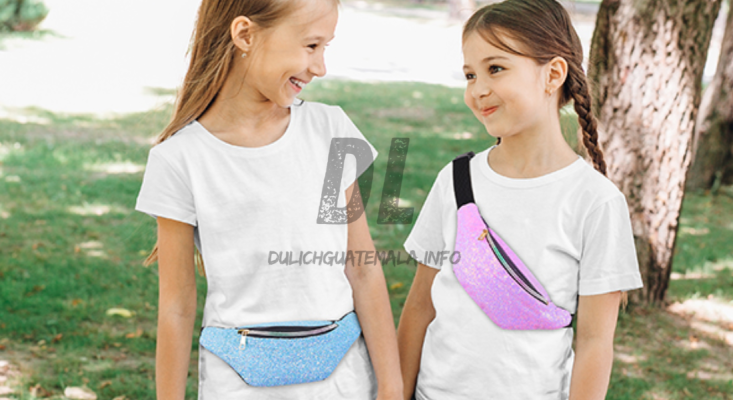Revolutionary Industry Developments Transforming Beauty as We Know It
The beauty industry is undergoing a seismic shift, driven by groundbreaking technologies, sustainable practices, and innovative approaches that are reshaping how we approach skincare, makeup, and overall self-care. Here’s a look at some of the most revolutionary developments transforming the beauty landscape in recent years.
1. AI and Machine Learning in Beauty
Personalized Skincare: AI and machine learning are revolutionizing skincare by providing highly personalized recommendations based on individual skin conditions and needs. Through facial recognition technology and skin analysis, AI can offer tailored product suggestions, track skin changes, and adjust routines in real time.
Virtual Try-Ons: Augmented Reality (AR) technology powered by AI allows users to virtually try on makeup products before purchasing. This innovation enhances the shopping experience by helping consumers find the perfect shades and formulations without the need for physical testers.
2. Biotechnology and Lab-Grown Ingredients
Bioengineered Skincare: Biotechnology is advancing skincare with lab-grown ingredients that replicate natural skin functions. This includes bioengineered peptides, proteins, and other compounds that offer more effective and sustainable solutions for anti-aging, hydration, and repair.
Sustainable Alternatives: Lab-grown ingredients reduce the reliance on natural resources and minimize environmental impact. Biotech solutions also help in creating hypoallergenic and non-toxic products, making skincare safer and more effective.
3. Sustainable and Eco-Friendly Practices
Zero-Waste Packaging: The beauty industry is adopting innovative packaging solutions to reduce waste. Refillable containers, biodegradable materials, and packaging made from recycled ocean plastics are becoming more common, helping to minimize the environmental footprint of beauty products.
Plant-Based Ingredients: The shift towards plant-based and cruelty-free ingredients is growing, with more brands focusing on organic, ethically sourced botanicals. This trend not only supports sustainability but also meets the increasing consumer demand for cleaner, greener products.
4. Advanced Hair Care Technologies
Scalp Health Innovations: The focus on scalp health is transforming hair care, with new products designed to improve scalp conditions and promote hair growth. Innovations include advanced serums, exfoliating treatments, and devices that analyze scalp health and deliver targeted treatments.
Smart Hair Tools: Hair styling tools are incorporating smart technology to enhance performance and user experience. From temperature-controlled flat irons to app-connected hair dryers, these tools offer precision and customization for optimal hair care.
5. Integrative Wellness and Beauty
Nutraceuticals and Supplements: The concept of beauty from within is gaining traction, with nutraceuticals—supplements designed to support skin health—becoming increasingly popular. These include vitamins, minerals, and antioxidants that improve skin appearance and overall well-being.
Stress-Relief Products: Beauty products that address stress and its effects on the skin are emerging. This includes products infused with calming ingredients or designed to provide stress-relief benefits, promoting both mental and physical wellness.
6. Inclusive Beauty Innovations
Expanded Shade Ranges: Inclusivity is a key focus, with beauty brands expanding their shade ranges to cater to a broader spectrum of skin tones. This effort aims to ensure that all consumers have access to products that match their unique skin tones and types.
Adaptive Beauty Products: Innovations in adaptive beauty products allow formulations to adjust to different skin conditions and environmental factors. This includes climate-responsive products that provide customized benefits based on location and weather conditions.
7. Advanced Dermatological Treatments
At-Home Dermatology Devices: Technology has enabled the development of advanced at-home dermatology devices, such as LED light therapy masks and microcurrent tools. These devices offer professional-grade treatments in the comfort of your home, targeting issues like acne, aging, and uneven skin tone.
Non-Invasive Procedures: Non-invasive beauty procedures, such as radiofrequency and ultrasound treatments, are becoming more accessible. These procedures offer effective solutions for skin tightening, wrinkle reduction, and overall skin rejuvenation without the need for surgery.
8. Digital Beauty and Virtual Experiences
Virtual Beauty Consultations: The rise of digital beauty services includes virtual consultations with skincare experts and makeup artists. These consultations provide personalized advice and recommendations, making professional beauty guidance more accessible to a global audience.
Interactive Beauty Apps: Interactive beauty apps are transforming the way consumers engage with beauty products. These apps offer features like virtual try-ons, ingredient analysis, and personalized product recommendations, enhancing the overall beauty experience.
Conclusion
The beauty industry is embracing a new era of innovation, driven by technological advancements, sustainable practices, and a focus on personalization. From AI-driven skincare and lab-grown ingredients to eco-friendly packaging and inclusive beauty solutions, these revolutionary developments are transforming how we approach beauty. As these trends continue to evolve, they promise to make beauty more accessible, effective, and aligned with the needs of the modern consumer.














Post Comment